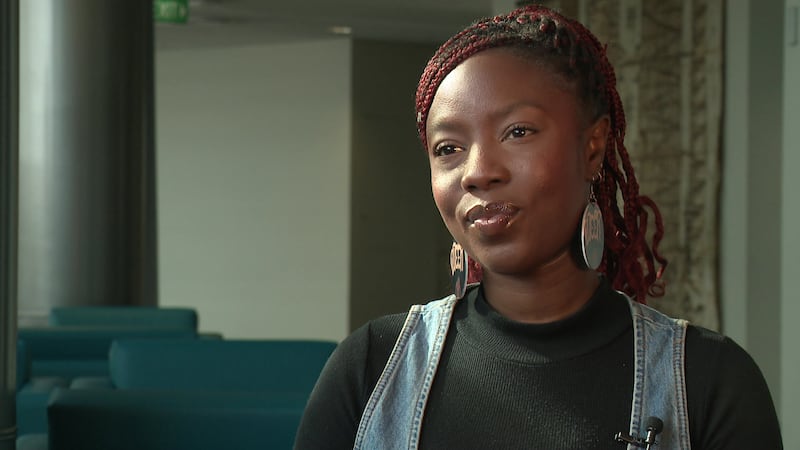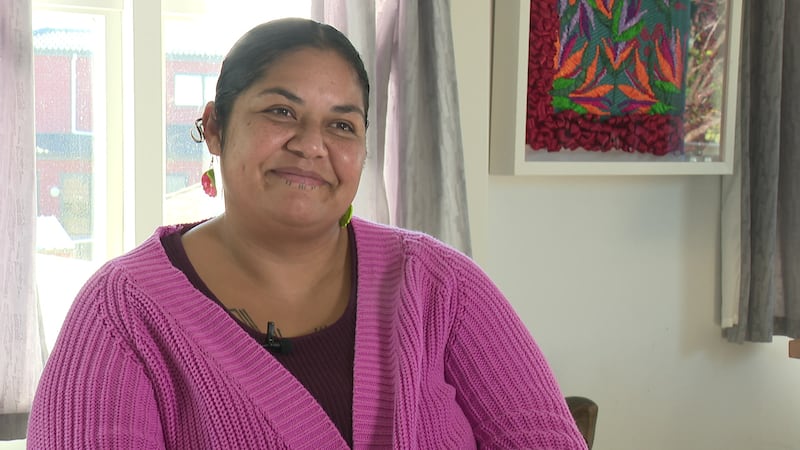Warning: This story openly features and discusses language that may offend.
We hear it in our songs, movies, TV shows, and even on social media.
It is a word used to disparage people as much as it’s used to reclaim history.
The Merriam-Webster Online Dictionary says it’s “perhaps the most offensive and inflammatory racial slur in English”.
The Oxford English Dictionary calls the word “one of the most controversial in English, and is liable to be considered offensive or taboo in almost all contexts (even when used as a self-description).”
And the argument of who can and can’t use it has raged on for centuries.
The N-word.
It’s a strong word with a heavy history dating back to the Atlantic Slave Trade, with it being reclaimed in modern times and used in a casual sense.
The kupu (word) comes from the word for black in Spanish and Portuguese - nègro - as well as the French word for black - nègre.
The N-word has been used to disparage African Americans for generations, but OutLine NZ Chief Executive and frequent guest lecturer at University of Auckland Emmaline Pickering-Martin (Nauluvatu, Nakelo, Sawaieke, Gau) said the slur has also been directed at people from the Pacific.
“White people were using [the n-word] as a derogatory term for people who have darker skin than them.
“A lot of our ancestors across the Pacific have been called the n-word and have had it weaponised against them.”
But where the black community in the US has reclaimed the word, openly using it to nullify its effect or in solidarity, questions remain whether people of Polynesian descent have the same social right to the word.
University of Auckland African Society President, Nicole Ambua, believes the answer is not as simple as ‘yes’ or ‘no’ but instead people being able to back themselves when using the n-word.
“Just be prepared for the fact, if you choose this word, you will be questioned about it... ...someone will ask you why do you use it, why is it important to you, why do you decide to speak in this way, what does it mean to you, and be prepared to kind of answer for that.
“Be prepared to kind of justify the use of it, and if you can’t then don’t.
“I think you need to have a ‘why’ as to whether you’re going to use it or not going to use it and ultimately I don’t think we can give permission to others to use it or not use it,” Ambua said.

She said the African community cannot say who or who isn’t allowed to say the kupu, but if they did, people historically don’t listen.
“People will continue to use it like it’s not as though they take our word as bible and say ‘yeah okay, they said no, we won’t use it’.
“It’s been proven throughout the past couple of decades, regardless of how certain people feel about it, people will still continue to use it.”
The N-word is considered the most offensive word in Aotearoa, according to a Broadcasting Standards Authority (BSA) 2022 survey into offensive words, with 65 percent of respondents calling it, “totally unacceptable in ALL scenarios.”
In 2013 it was third place right after the phrase ‘Jesus Fucking Christ’ and in 2018 it moved up a spot being runner-up to the word ‘cunt’ a kupu that is also spoken casually across the motu.
It became the most offensive word in 2022, with 65% of people stating it was ‘totally unacceptable in ALL scenarios,’ 27% indicating that its acceptability depends on the context, and 8% believing it is suitable for all scenarios.
The BSA said that the N-word being number one was likely due to the “heightened awareness of racial discrimination arising out of the Black Lives Matter campaign.”
‘There’s always that potential threat’
The UOA African Society President said the word has been negatively directed to her from multiple different ethnicities not only by white people.
“For me personally, when I do hear the word, I feel like when it’s in the hands of someone who isn’t a black person for me personally there’s always that potential threat at any point it could be used against me or it could be wielded against me to demean me to devalue me.”
A while ago, the African society held a hui to debate the use of the word when said by someone of non-African descent.
“For different people it varies, when we had our event and when we discussed this different members of our society felt differently about it, some weren’t affected at all by the use of the word who weren’t African or black.
“A lot of them didn’t have a reason to because they didn’t have a relationship with the word, and they’ve come here quite recently. So for them, they don’t have the relationship with the word or they’ve just not let it affect them or never had it used against them,” she said.
‘Uncle N-word’
Pickering-Martin says the N-word is used a lot within the Māori and Islander communities.
“You will see that with older uncles, you might have an uncle n-word, lots of our whānau do all around the motu.”
She believes Māori and Pacific Islanders shouldn’t use the kupu.
“It just has so much history behind it, and so much context behind it that as a people supporting other Indigenous and minority communities, we really should be respecting the power that those words have.”

She drew similarities between the words boonga, FOB, coconut, hori, and the n-word.
“All of those words were used for oppression, and do we want to use that word in a joyful context when you already know that it’s been used in an oppressive context?
“So why would we want to inflict that on anyone else and why would we want to use words like that when colonisers used that to oppress us for hundreds and hundreds of years?
“There are so many other words in the world, especially in English, you could use.”



